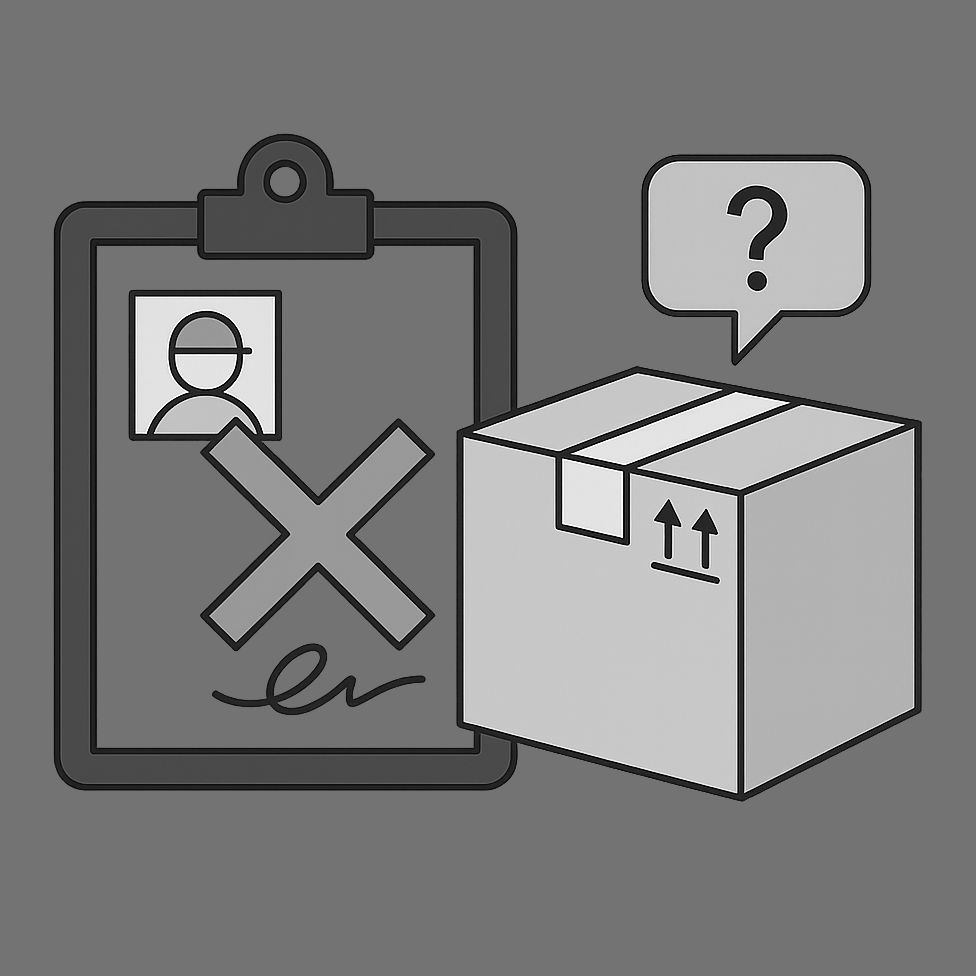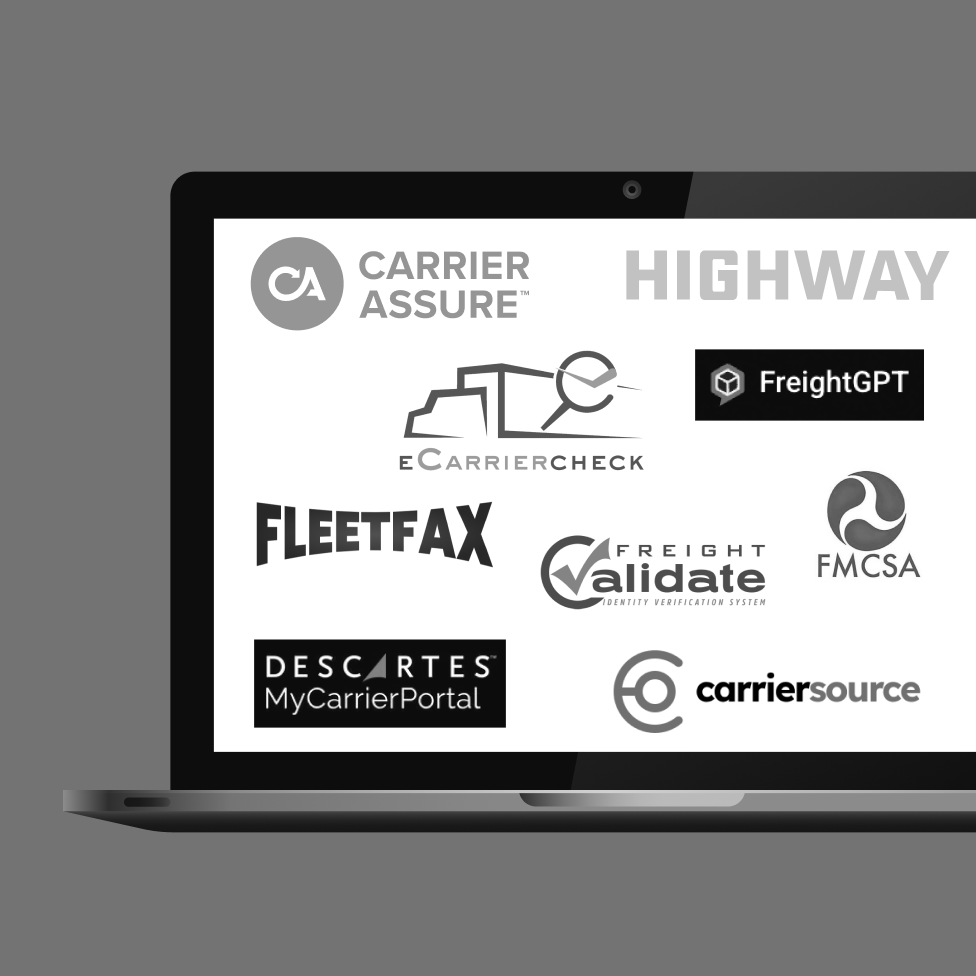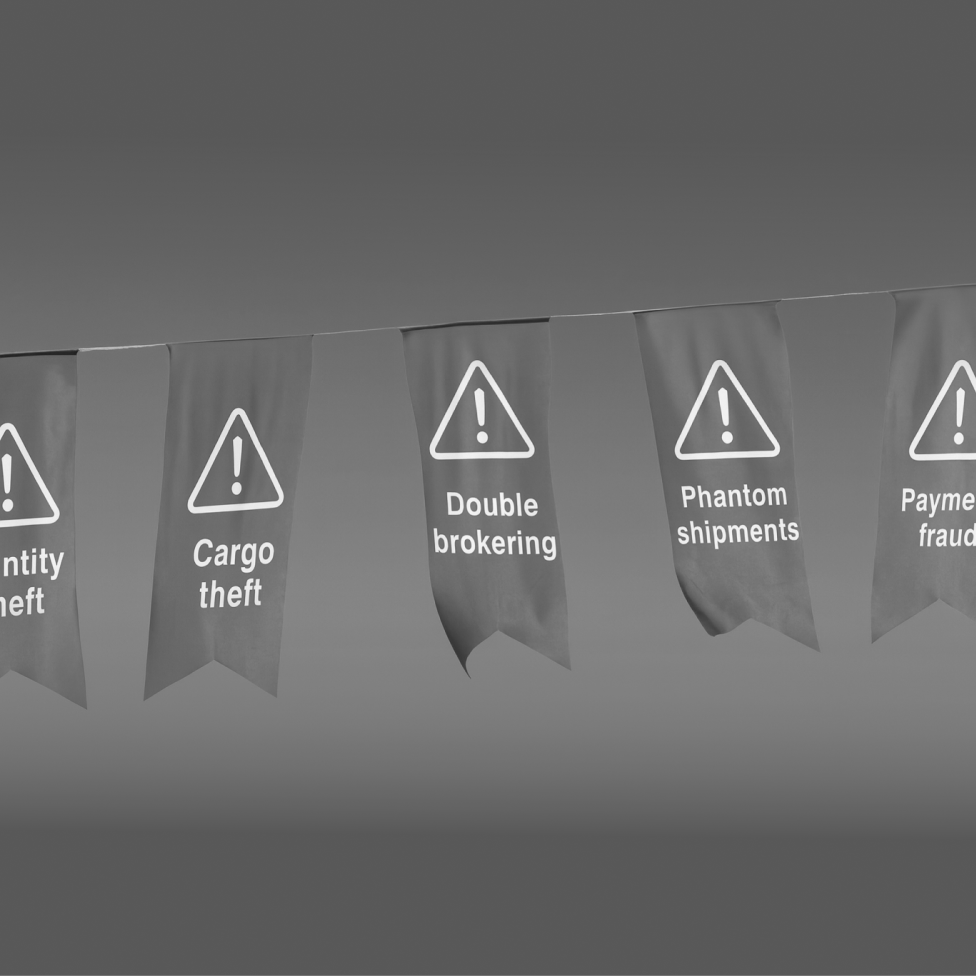All of the processes involved in freight billing, payments, invoicing, and collections can seem complicated, especially because there are so many different parties involved for freight brokers.
To have a successful brokerage, brokers need to have a deep understanding of how money flows between the various parties involved, including carriers, shippers, and your brokerage.
Freight billing for brokers breaks down into three core parts: Freight invoicing from carriers and to shippers, freight payments to carriers, and freight collections when brokers collect on payments from shippers. To best understand this process, let’s start with a few definitions of these terms.
Freight invoicing includes two invoicing steps, with the broker acting as the intermediary. First carriers will create and send invoices to their broker for loads, along with relevant paperwork like a POD and BOL. Then brokers will use this information to create a second invoice, which is sent to shippers with all of the relevant details.
Freight payments is the step where brokers pay carriers for their services. This can happen in a few ways, either immediately through a QuickPay service provided by a factoring company, or in 7-15 days depending on the payment terms agreed to by the broker and carrier.
Freight collections is the process of collecting payments from shippers for the services arranged by the broker. This includes the broker's fee and covers the cost of the carrier’s services, and is sometimes also performed by the broker’s factoring company instead of the broker.
In this article, we’ll dive deep into the freight billing process for brokers, and will break down everything brokers need to know about freight invoicing, payments, and collections.

We surveyed nearly 100 shippers to understand what drives their decisions and frustrations. Price matters—but service, communication, and back-office ease matter more.
What is the Freight Billing Process?
The freight billing process for brokers is the process where money moves between the three parties involved: shippers, brokers, and carriers. The broker needs to pay carriers for transporting the shipper's goods, and must collect payment from those shippers - acting as the middleman between the two.
Here's a breakdown of how the process typically works:
- A shipper contracts a broker to arrange transportation for their goods.
- The broker finds a suitable carrier and negotiates rates.
- The carrier transports the freight and invoices the broker upon delivery.
- The broker pays the carrier according to agreed-upon terms.
- The broker invoices the shipper for the transportation services.
- The shipper pays the broker according to their payment terms.
Shippers and carriers tend to approach freight billing on slightly different timelines. For example, many shippers operate on net-30 or net-60 terms, meaning they’ll pay a broker’s invoice within 30 or 60 days. Carriers, however, often expect brokers to pay much more quickly on a net-15, net-7, or immediate basis.
For freight brokers, the freight billing process isn’t just about paying bills and collecting money owed. It’s also about smartly managing cash flow, so those periods between carrier payment and getting paid by shippers don’t disrupt business operations.
As you can see, there are a few challenges that might come up with this process as a broker. The biggest of which is cash flow management. Typically, carriers expect payments before shippers are willing to pay, which can strain the cash reserves of brokers who aren’t prepared, or don’t utilize a factoring service.
Brokers can also run into challenges with document collection and invoice accuracy, leading to unnecessary back and forth between brokers and carriers to correct documents. This is one of the big reasons brokers require a streamlined back-office operation to ensure their business runs smoothly.
Understanding Freight Invoices
Let’s dive a little deeper into freight invoices for brokers, which is the first step of the freight billing process in most cases.
What is a freight invoice?
Freight invoices are the bills issued by carriers to brokers, and by brokers to shippers. They include details of the shipment, additional charges or fees, and more. Freight invoices are the cornerstone of the freight billing process, and brokers will have to deal with them on both sides of the shipment: invoices from carriers and invoices to shippers.
Carrier Invoices
Carrier invoices are the bills sent to brokers, sometimes referred to as a “freight bill” or “freight invoice”.
What is in the carrier invoice?
Carrier invoices include all of the details of the shipment, rates, and fees to be paid for the delivery of goods. The invoice includes important details such as the contact information of the shipper, receiver, and carrier, the purchase order or reference number, the dates of pick-up and delivery, rates, payment due dates, and more. Many factors help determine freight rate, including mode of transportation, fuel surcharges, haul distance, freight class, weight, and more.
Carriers’ invoices also sometimes contain what’s known as accessorial charges – fees for additional services provided aside from transporting freight from Point A to Point B. Some of the most common accessorial charges brokers may encounter include:
- Detention charges: Detention charges happen when drivers wait extra time before getting loaded or unloaded at the loading dock.
- Reconsignment charges: Reconsignment charges occur when the freight destination changes after a carrier has already picked up the shipment.
- Stop-off charges: Stop-off charges are when additional stops get added to a route, leading to additional time spent by the carrier.
These are just some of the most common accessorial charges, if you’d like to learn more read about the top 6 accessorial charges every broker should know here.
Shipper Invoices
Shipper invoices from freight brokers are the invoices sent to shippers after the load is delivered.
What is a shipper invoice?
A shipper invoice is the bill you, as a broker, send to your client (the shipper) for arranging transportation services. The shipper invoice sent by brokers contains many of the same details as carrier invoices, such as the services rendered, costs, payment due dates, and more.
What’s in the shipper’s invoice?
Shipper invoices typically include:
- Names and details of the shipper, carrier, and receiver
- Shipment details (origin, destination, date)
- Base freight charges
- Fuel surcharges
- Any accessorial charges passed on from the carrier
- Your brokerage fee or commission
- Total amount due
- Payment terms and due date
How should brokers add freight charges to the invoice?
When a carrier has accessorial charges, they need to be added to the invoice brokers send to the shipper. Carriers will frequently have additional accessorial charges that get tacked on to the base rate of a job for unexpected services or expenses, and it’s important that brokers communicate clearly about these potentially unexpected fees.
Communicating about these charges and billing for them separately ensures there are no misunderstandings between brokers and shippers. These additional charges should be clearly indicated and itemized on the invoice for the shipper.
Who issues the invoice for freight shipments?
When a broker is involved in the shipment process, there are two invoices issued for every shipment. The first invoice is from the carrier to the broker, and is a bill for the carrier’s services. The second invoice is issued from the broker to the shipper, and includes many of the details and information from the carrier’s invoice, plus additional information and fees from the broker for arranging the shipment.
Understanding Freight Payments
After the invoices have been created and sent, the next step in the freight billing process is freight payments. This includes payments from brokers to carriers, freight bill factoring, and finalizing shipment details with the carrier before sending off an invoice to the shipper.
What are Freight Payments?
Freight payments are the payments made from brokers to carriers for the services the carrier provides. These payments are essential to stay on top of as a broker, because they are the building blocks of a good reputation with carriers. Top carriers are picky about the brokers they work with, and establishing a reputation for consistently paying carriers on time and quickly is crucial for brokers who want to grow.
The biggest way these payments impact your business is through your freight broker credit score. Brokers with good credit scores have an easier time getting financing, finding carriers who want to transport their loads, and getting the best rates from lenders - so it’s not something to ignore!
Best Payment Practices for Brokers:
Following these payment best practices will help keep your brokerage in good standing and help ensure carriers, shippers, and other third parties are happy and paid on time, all while cutting down on time spent by your back-office:
- Implement a QuickPay program: Offer QuickPay payments to reliable carriers, but be cautious. It's best to use QuickPay for carriers you've established relationships with or those vetted through programs like MCP. Avoid using QuickPay for first-time invoices.
- Maintain consistent payment schedules: Set up automated payment terms for each carrier. This consistency builds trust and contributes to a healthy broker credit score.
- Don’t QuickPay carrier factoring companies: Consistently paying carrier factoring companies within 28-29 days helps improve your brokerage’s reputation and credit. One easy way to do this is to give carriers ‘set and forget’ settings for their payments, so payments are made on time every time. Establishing consistent settings for factored invoices also helps reduce calls from carrier factoring companies following up on payments.
- Prioritize carrier payments: Always prioritize paying your carriers before paying yourself. This prevents debt spirals and ensures you're covering your obligations first.
- Consider working with a factoring company: Factoring with a company like Denim can automate your payments, saving time and improving cash flow management.
Common Freight Payment Pitfalls
As you can tell, it’s easy for the freight billing process to get overwhelming fast. Freight payment terms, invoices, and contracts can change dramatically from day to day and route to route. With all of this complexity, mistakes are bound to happen - especially with error-prone manual data entry. Here’s some of the most common pitfalls brokers fall into with freight payments:
Inaccurate documentation
Be sure to double-check for duplicate payments or incorrectly calculated charges on carrier invoices.
These errors are unfortunately all too common in brokerages, not because of any malice from carriers, but because manual calculations are frequently error-prone. As a broker, you want to ensure accuracy in the invoices you receive to prevent you and your shippers from overspending.
Misalignment with agreed payment terms
Ensure you're sticking to the payment schedules you've established with carriers. The different payment terms between shippers and carriers can be a huge challenge for brokers, leading to some brokers delaying payments to carriers.
This is a huge mistake. No matter how long it takes shippers to pay, brokers need to stay liquid enough to pay carriers on time. Otherwise, carriers may stop working with you; or worse, they may file against your surety bond, which will cost you additional money and could hurt your credit and reputation in the long run. This is why we often recommend brokers work with a factoring company to maintain cash flow and liquidity, even if they choose not to factor every load.
Poor record-keeping and bookkeeping
Maintain detailed records of all transactions to comply with regulations and provide transparency when needed.
Freight brokers also need to be sure they’re keeping good records of payments to carriers and payments from shippers. According to federal regulation — specifically, 49 Code of Federal Regulations part 371.3 — every party in a brokered transaction has a right to review records of those transactions. If carriers or shippers ask, a freight broker must be able to furnish information like the bill of lading, the details of all parties involved in the transaction, the amount of compensation received for brokerage services, and more.
Understanding Freight Collections
Freight collections are the last step in the freight billing process, where the broker collects payment from the shipper. This often is determined by the broker shipper contract, freight payment terms, and invoice terms from the broker.
What are Freight Collections?
Freight collections is the process of a broker receiving payment from shippers for the transportation services you've arranged. Effective collections are crucial for maintaining positive cash flow and the overall health of your brokerage.
A collections process is critically important for brokering. This process ensure you have revenue when you need it, maintain positive relationships with shippers, and most importantly lets you meet your financial obligations to carriers. When handled professionally and clearly, a solid collections process provides a positive customer experience between your brokerage and shippers, leading to repeat business and a great reputation in the industry.
Steps in the Collections Process
- Invoice sent to shipper: Send accurate, detailed invoices to shippers promptly after loads are delivered.
- Invoice tracking: Monitor the status of all outstanding invoices and track invoice aging.
- Payment reminders: Send reminders as due dates approach.
- Follow-up: Contact clients about upcoming payments consistently.
- Escalation: If necessary, establish an escalation process to collect on overdue payments.
Best Practices for Freight Collections:
- Establish clear payment terms and policies upfront: Ensure your clients understand and agree to your payment terms before providing services.
- Maintain accurate records: Keep detailed documentation of all transactions and communications for reference and compliance.
- Implement automated reminders: Set up a system to automatically notify clients of approaching due dates and overdue invoices.
- Foster good relationships with shippers: Build strong, professional relationships to encourage timely payments and open communication.
- Offer multiple payment options: Make it easy for clients to pay by accepting various payment methods.
- Consider early payment incentives: Offer small discounts for early or on-time payments to encourage prompt payments of invoices.
Freight Invoicing, Payments, and Collections Partners
Due to the complicated and often burdensome process involved in invoicing, payments, and collections, many brokers opt to use specialized partners to streamline their freight billing processes.
Working with a financial partner can streamline the process for brokers, shippers, and carriers while avoiding the common pitfalls outlined above. For example, a platform like Denim offers automated invoicing, which can help brokers avoid duplicate and inaccurate invoices.
These tools also provide services like factoring and managed collections. With managed collections, brokers can also spend less time chasing shippers for payment and more time on critical business functions. Factoring services also give brokers a flexible tool to maintain consistent cash flow. Factoring allows a broker to sell unpaid invoices to a financial partner for immediate cash.
Many financial partners also offer carrier QuickPay options, which allow brokers to pay carriers faster. That efficiency, in turn, leads to better relationships with carriers. Reports show that as many as 60% of brokers don’t have easy, digital ways to pay carriers. Carriers prefer working with brokers that pay on time and reliably, leading to brokers with access to these tools getting their pick of the best carriers in the business.
Finally, financial partners like Denim provide best-in-class analytics, reporting tools, and compliance support, giving brokers valuable insights into financial data at a glance while ensuring compliance with regulatory requirements.
Conclusion:
Mastering the freight billing process is essential for the success of any freight brokerage. By understanding and optimizing your invoicing, payment, and collections procedures, you can:
- Improve cash flow management
- Build stronger relationships with carriers and shippers
- Reduce errors and disputes
- Ensure regulatory compliance
- Free up time to focus on core business growth
Efficient freight billing isn’t just about moving money – it's about creating a smooth, professional experience for all parties involved. By implementing the best practices outlined in this guide and considering partnerships with specialized service providers, you can transform your freight billing process from a back-office burden into a strategic advantage for your brokerage.
When freight brokers efficiently manage the freight payment process, they can help shippers see better value for their money, ensuring carriers get paid on time, and establishing reliable cash flow needed to keep growing their business.
To learn more about automating your freight payments, contact us today. If you’re interested in learning more about how Denim can help grow your credit and help build your business, we’d love to talk.
Denim’s automated solutions streamline your back-office operations. Explore our solutions to see how Denim can help your business scale efficiently.
There's a better way


.png)




